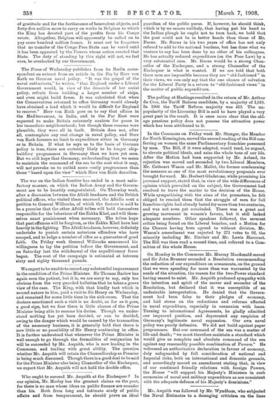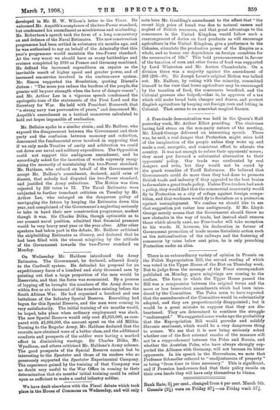Mr. Asquith was followed by Mr. Wyndham, who subjected the
Naval Estimates to a damaging criticism on the lines*
developed in Mr. H. W. Wilson's letter to the Times. He welcomed Mr. Asquith's acceptance of the two-Power standard, but condemned his amendment as mischievous and misleading. Mr. Robertson's speech took the form of a long commentary on and' defence of the Naval Estimates. The new construction programme had, been settled in substance six months ago, and he was authorised to say on behalf of the Admiralty that this year's programme would maintain the two-Power standard. At the very worst we should have as many battleships and cruisers completed by 1910 as France and Germany combined. He defined the increased expenditure on repairs as the inevitable result of higher speed and greater power, and of increased sea-service involved in the nucleus-crew system. Mr. Simon supported the Resolution, quoting Disrael's dictum : "The more you reduce the burdens of the people, the greater will be your strength when the hour of danger comes"; and Mr. Arthur Lee in a vigorous speech condemned the apologetic tone of the statements of the First Lord and the Secretary for War. He held with President Roosevelt that " a strong navy was provocative of peace," and denounced Mr. Asquith's amendment as a tactical manoeuvre calculated to hold out hopes impossible of realisation.















































 Previous page
Previous page